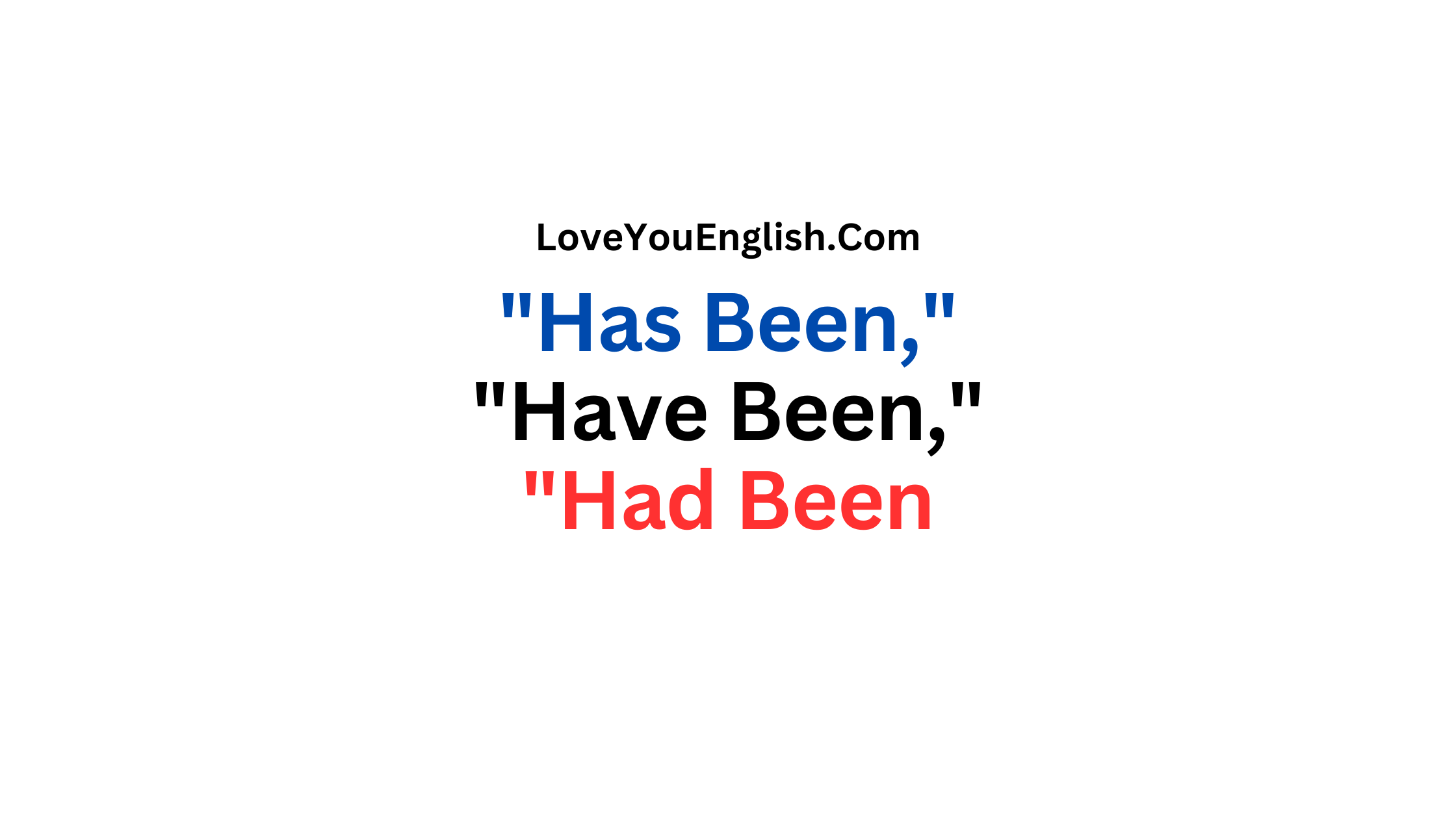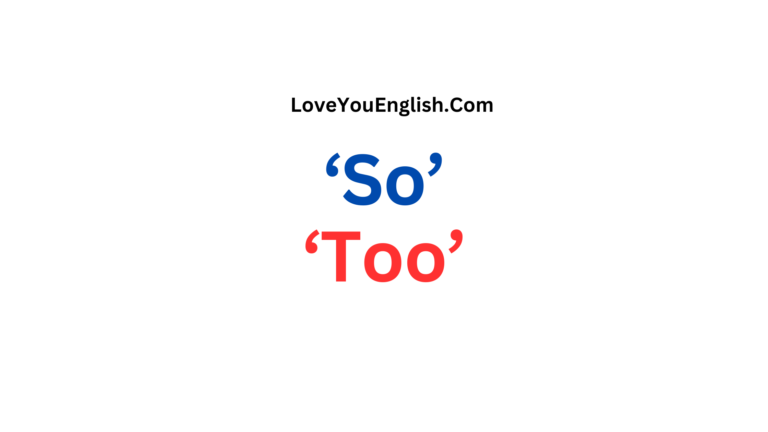Use of Has Been, Have Been & Had Been – Rules with Examples
English grammar can be hard, especially when it comes to verb tenses.
“Has been,” “have been,” and “had been” can be confusing for learners.
But it’s important to understand these forms for clear communication.
In this lesson, we’ll go through each of these forms, explain how to use them, and give lots of examples to help you understand their meanings and uses.
Understanding the Basics
Before we dive into the specifics, let’s start with some basic grammar concepts.
Present Perfect Tense: This tense is used to describe actions that occurred at an unspecified time in the past and are relevant to the present.
It is formed using “has/have” + past participle.
Past Perfect Tense: This tense describes actions that were completed before another action in the past.
It is formed using “had” + past participle.
Present Perfect Continuous Tense: This tense describes actions that began in the past and are still continuing or have just finished.
It is formed using “has/have been” + present participle (verb+ing).
Past Perfect Continuous Tense: This tense describes actions that were ongoing in the past up until another point in the past.
It is formed using “had been” + present participle (verb+ing).
Now, let’s look at each form in detail.
“Has Been” and “Have Been”
“Has been” and “have been” are used in the present perfect continuous tense.
They indicate actions that started in the past and are still happening or have recently stopped.
The choice between “has been” and “have been” depends on the subject of the sentence.
- “Has been” is used with singular third-person subjects (he, she, it).
- “Have been” is used with plural subjects (they, we) and with first-person (I) and second-person (you) subjects.
Examples of “Has Been”
- She has been reading the book for three hours.
- He has been working at this company since January.
- The dog has been barking all night.
In these examples, “has been” indicates actions that started in the past and are either still happening or have just stopped.
Examples of “Have Been”
- I have been learning English for two years.
- They have been playing football since morning.
- We have been waiting for the bus for an hour.
Here, “have been” serves the same purpose as “has been” but is used with different subjects.
“Had Been”
“Had been” is used in the past perfect continuous tense.
It describes actions that were ongoing in the past up until another point in the past.
This form is used to show that one action was in progress before another action took place.
Examples of “Had Been”
- She had been living in New York before she moved to Los Angeles.
- They had been dating for five years before they got married.
- I had been working on the project for two weeks before I completed it.
In these examples, “had been” indicates actions that were ongoing in the past and were completed before another past action.
Comparing “Has Been,” “Have Been,” and “Had Been”
Let’s compare these forms with similar examples to highlight the differences:
Present Perfect Continuous (Has/Have Been):
Past Perfect Continuous (Had Been):
Usage Tips
To use these forms correctly, keep these tips in mind:
Determine the Subject: The subject of the sentence will help you decide whether to use “has been” or “have been.”
-
- Singular third-person subjects (he, she, it) → “has been.”
- Plural subjects and first/second-person subjects (they, we, I, you) → “have been.”
Identify the Time Frame: If the action started in the past and is still relevant or ongoing, use “has been” or “have been.”
If the action was ongoing in the past and completed before another past action, use “had been.”
Context Matters: Pay attention to the context of the sentence to determine the correct form.
For instance:
-
- Present Perfect Continuous (ongoing relevance): “I have been feeling sick all day.”
- Past Perfect Continuous (completed before another past action): “I had been feeling sick before I took the medicine.”
Common Mistakes and How to Avoid Them
Using “Has Been” with Plural Subjects:
-
Incorrect: “They has been working hard.”- Correct: “They have been working hard.”
Using “Have Been” with Singular Third-Person Subjects:
-
Incorrect: “She have been studying.”- Correct: “She has been studying.”
Mixing Tenses Incorrectly:
-
Incorrect: “He had been playing guitar since he was a child.”- Correct: “He has been playing guitar since he was a child.”
Using “Had Been” for Present Actions:
Exercises for Practice
To reinforce your understanding, try these exercises:
Choose the correct form (has been, have been, or had been) for each sentence:
Rewrite the sentences using the correct tense:
Answers:
Conclusion
It’s super important to know when to use “has been,” “have been,” and “had been” in English.
These words help show different times and keep your sentences clear.
If you learn the rules and practice a lot, you’ll get better at using them correctly.
Just remember: “has been” is for one person, “have been” is for more than one person, and “had been” is for actions that were happening in the past.
Keep practicing and you’ll get the hang of it in no time.
Good luck with your learning!
Explore more topics:
- Daily English Conversation Practice – At a Restaurant
- Daily English Conversations for Beginners
- English Conversation: A Day in the Library
- The Benefits of Teaching Online from Home







